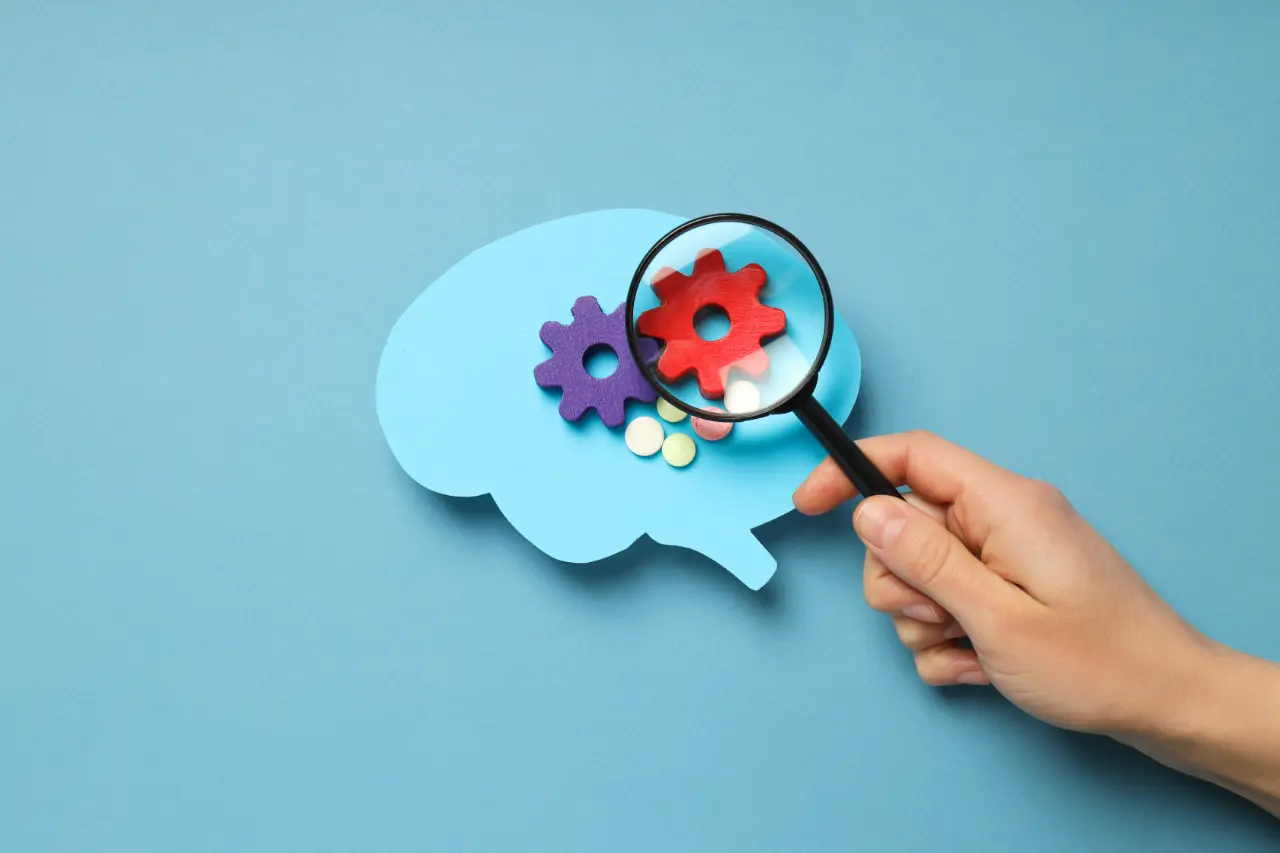Individuals and Couple Therapy
Navigating life’s challenges can be tough. Sometimes, we need a helping hand to guide us through.
Therapy for individuals and couples can be that guiding hand. It offers a safe space to explore personal and relationship issues.
Individual therapy can help address personal issues like stress, anxiety, or depression. It can foster personal growth and self-awareness.
Couples therapy, on the other hand, focuses on relationship dynamics. It can help resolve conflicts, improve communication, and build intimacy.
This article aims to shed light on the benefits and processes of therapy for individuals and couples. Whether you’re considering therapy for yourself, your relationship, or seeking information for a loved one, this guide is for you.
Let’s embark on this journey of understanding therapy, its benefits, and how it can lead to a healthier, happier life.
Understanding Therapy for Individuals and Couples
Therapy, also known as psychotherapy or counseling, is a process to treat mental health and emotional challenges. It can help individuals, couples, and families understand and resolve problems, modify behavior, and make positive changes in their lives.
Individual therapy focuses on the person’s unique needs. It provides a confidential setting to discuss personal issues, such as depression, anxiety, or stress. The therapist helps the individual understand their feelings, thoughts, and behaviors, and develop coping strategies.
Couples therapy, also known as relationship therapy, involves both partners in a relationship. The therapist helps the couple identify and resolve conflicts, improve their relationship skills, and build a healthier relationship. Common issues addressed include communication problems, infidelity, and intimacy issues.
The choice between individual and couples therapy depends on the specific needs and goals of the person or couple. Both types of therapy can provide valuable insights, improve mental health, and enhance quality of life.
Understanding the purpose and process of therapy is the first step towards healing and growth. It’s about taking control of your life, your relationship, and your happiness.
When to Seek Therapy: Recognizing the Signs
Recognizing the need for therapy is an important step towards improving mental health and relationships. It’s not always easy to know when to seek help. However, certain signs can indicate that therapy might be beneficial.
For individuals, these signs might include persistent feelings of sadness, anxiety, or emptiness. You might find it hard to concentrate, make decisions, or carry out everyday tasks. Changes in sleep or appetite, or feelings of hopelessness or worthlessness, can also be signs that therapy could help.
In a relationship, signs that couples therapy might be beneficial can include constant conflict, poor communication, or dissatisfaction. If there’s a significant change in your relationship, such as infidelity or a major life transition, couples therapy can provide support and guidance.
- Persistent feelings of sadness, anxiety, or emptiness
- Difficulty concentrating or making decisions
- Changes in sleep or appetite
- Feelings of hopelessness or worthlessness
- Constant conflict or poor communication in a relationship
- Significant changes in a relationship, such as infidelity or a major life transition
Remember, it’s okay to seek help. Therapy is a tool for personal growth and relationship improvement, not a sign of weakness.
The Benefits of Therapy for Personal and Relationship Growth
Therapy offers numerous benefits for both individuals and couples. For individuals, it provides a safe space to explore feelings, thoughts, and behaviors. It can help you understand yourself better and develop coping strategies for life’s challenges.
Couples therapy, on the other hand, focuses on improving relationship dynamics. It can help couples communicate more effectively, resolve conflicts, and build a stronger bond. It can also provide tools to navigate major life changes together.
Therapy can also lead to personal growth and self-awareness. It can help you understand your emotions, identify your strengths and weaknesses, and set personal goals. It can also help you develop healthier relationships and improve your overall quality of life.
In conclusion, therapy is a powerful tool for personal and relationship growth. It can help you navigate life’s challenges, improve your mental health, and build stronger, healthier relationships.
Different Types of Therapeutic Approaches
There are several therapeutic approaches used in therapy for individuals and couples. Each approach has its unique focus and techniques. The choice of approach often depends on the therapist’s training and the client’s needs.
Cognitive-behavioral therapy (CBT) is a common approach. It focuses on identifying and changing negative thought patterns that lead to harmful behaviors. It’s often used for issues like anxiety and depression.
Psychodynamic therapy, on the other hand, delves into past experiences. It aims to uncover unconscious thoughts and feelings that influence current behaviors. This approach can be beneficial for individuals dealing with unresolved past issues.
Systemic therapy is often used in couples therapy. It views the couple as a system and focuses on the dynamics within that system. It can help couples understand and change harmful patterns in their relationship.
Here are some other therapeutic approaches:
- Solution-focused therapy
- Narrative therapy
- Dialectical behavior therapy
- Emotion-focused therapy
- Family systems therapy
Each approach has its strengths. The key is to find the one that best fits your needs and goals.
Choosing the Right Therapist for You or Your Relationship
Choosing the right therapist is a crucial step in your therapy journey. It’s important to find someone you feel comfortable with. Trust and rapport are key to a successful therapeutic relationship.
Consider the therapist’s qualifications and experience. They should be licensed and have experience in dealing with your specific issues. Don’t hesitate to ask about their training and approach to therapy.
Remember, therapy is a personal journey. It’s okay to take your time to find the right fit. It’s also okay to change therapists if you feel it’s not working out.
Lastly, consider practical factors like location, availability, and cost. These can significantly impact your therapy experience.
Preparing for Your First Therapy Session
Your first therapy session can feel daunting. It’s normal to feel a mix of emotions. Remember, it’s a step towards better mental health.
Before the session, think about what you want to achieve. Having clear goals can guide the therapy process. It’s okay if these goals change over time.
During the session, be open and honest. Your therapist is there to help, not judge. The more they know, the better they can assist you.
After the session, take some time to reflect. How did you feel during and after the session? This can help you gauge your comfort with the therapist and the process.
What to Expect During Therapy
Therapy sessions typically follow a structure. They start with a check-in, followed by discussion of issues, and end with a summary and plan for the next session.
During therapy, you’ll explore your thoughts, feelings, and behaviors. You’ll learn new coping strategies and ways to manage your issues.
Remember, progress in therapy isn’t linear. There may be setbacks, but they’re part of the process. It’s important to stay committed and consistent.
Lastly, confidentiality is a key aspect of therapy. What you share stays between you and your therapist, fostering a safe space for healing.
Overcoming Challenges and Measuring Progress in Therapy
Therapy can be challenging. It requires confronting difficult emotions and past traumas. But remember, it’s a journey towards healing and growth.
Setbacks are common in therapy. They’re not failures, but opportunities to learn and grow. Your therapist will guide you through these moments.
Measuring progress in therapy isn’t always straightforward. It’s not just about symptom reduction, but also about personal growth and improved quality of life.
Finally, remember that therapy is a commitment. Consistency is key, and the benefits often come with time and patience.
Conclusion: Embracing the Journey of Therapy
Therapy is a journey of self-discovery and growth. It’s about embracing change and learning to navigate life’s challenges with resilience and grace.
Remember, seeking help is not a sign of weakness, but a testament to your strength. Embrace the journey, and let therapy guide you towards a healthier, happier life.
Individuals and Couple Therapy
Navigating life’s challenges can be tough. Sometimes, we need a helping hand to guide us through.
Therapy for individuals and couples can be that guiding hand. It offers a safe space to explore personal and relationship issues.
Individual therapy can help address personal issues like stress, anxiety, or depression. It can foster personal growth and self-awareness.
Couples therapy, on the other hand, focuses on relationship dynamics. It can help resolve conflicts, improve communication, and build intimacy.
This article aims to shed light on the benefits and processes of therapy for individuals and couples. Whether you’re considering therapy for yourself, your relationship, or seeking information for a loved one, this guide is for you.
Let’s embark on this journey of understanding therapy, its benefits, and how it can lead to a healthier, happier life.
Understanding Therapy for Individuals and Couples
Therapy, also known as psychotherapy or counseling, is a process to treat mental health and emotional challenges. It can help individuals, couples, and families understand and resolve problems, modify behavior, and make positive changes in their lives.
Individual therapy focuses on the person’s unique needs. It provides a confidential setting to discuss personal issues, such as depression, anxiety, or stress. The therapist helps the individual understand their feelings, thoughts, and behaviors, and develop coping strategies.
Couples therapy, also known as relationship therapy, involves both partners in a relationship. The therapist helps the couple identify and resolve conflicts, improve their relationship skills, and build a healthier relationship. Common issues addressed include communication problems, infidelity, and intimacy issues.
The choice between individual and couples therapy depends on the specific needs and goals of the person or couple. Both types of therapy can provide valuable insights, improve mental health, and enhance quality of life.
Understanding the purpose and process of therapy is the first step towards healing and growth. It’s about taking control of your life, your relationship, and your happiness.
When to Seek Therapy: Recognizing the Signs
Recognizing the need for therapy is an important step towards improving mental health and relationships. It’s not always easy to know when to seek help. However, certain signs can indicate that therapy might be beneficial.
For individuals, these signs might include persistent feelings of sadness, anxiety, or emptiness. You might find it hard to concentrate, make decisions, or carry out everyday tasks. Changes in sleep or appetite, or feelings of hopelessness or worthlessness, can also be signs that therapy could help.
In a relationship, signs that couples therapy might be beneficial can include constant conflict, poor communication, or dissatisfaction. If there’s a significant change in your relationship, such as infidelity or a major life transition, couples therapy can provide support and guidance.
- Persistent feelings of sadness, anxiety, or emptiness
- Difficulty concentrating or making decisions
- Changes in sleep or appetite
- Feelings of hopelessness or worthlessness
- Constant conflict or poor communication in a relationship
- Significant changes in a relationship, such as infidelity or a major life transition
Remember, it’s okay to seek help. Therapy is a tool for personal growth and relationship improvement, not a sign of weakness.
The Benefits of Therapy for Personal and Relationship Growth
Therapy offers numerous benefits for both individuals and couples. For individuals, it provides a safe space to explore feelings, thoughts, and behaviors. It can help you understand yourself better and develop coping strategies for life’s challenges.
Couples therapy, on the other hand, focuses on improving relationship dynamics. It can help couples communicate more effectively, resolve conflicts, and build a stronger bond. It can also provide tools to navigate major life changes together.
Therapy can also lead to personal growth and self-awareness. It can help you understand your emotions, identify your strengths and weaknesses, and set personal goals. It can also help you develop healthier relationships and improve your overall quality of life.
In conclusion, therapy is a powerful tool for personal and relationship growth. It can help you navigate life’s challenges, improve your mental health, and build stronger, healthier relationships.
Different Types of Therapeutic Approaches
There are several therapeutic approaches used in therapy for individuals and couples. Each approach has its unique focus and techniques. The choice of approach often depends on the therapist’s training and the client’s needs.
Cognitive-behavioral therapy (CBT) is a common approach. It focuses on identifying and changing negative thought patterns that lead to harmful behaviors. It’s often used for issues like anxiety and depression.
Psychodynamic therapy, on the other hand, delves into past experiences. It aims to uncover unconscious thoughts and feelings that influence current behaviors. This approach can be beneficial for individuals dealing with unresolved past issues.
Systemic therapy is often used in couples therapy. It views the couple as a system and focuses on the dynamics within that system. It can help couples understand and change harmful patterns in their relationship.
Here are some other therapeutic approaches:
- Solution-focused therapy
- Narrative therapy
- Dialectical behavior therapy
- Emotion-focused therapy
- Family systems therapy
Each approach has its strengths. The key is to find the one that best fits your needs and goals.
Choosing the Right Therapist for You or Your Relationship
Choosing the right therapist is a crucial step in your therapy journey. It’s important to find someone you feel comfortable with. Trust and rapport are key to a successful therapeutic relationship.
Consider the therapist’s qualifications and experience. They should be licensed and have experience in dealing with your specific issues. Don’t hesitate to ask about their training and approach to therapy.
Remember, therapy is a personal journey. It’s okay to take your time to find the right fit. It’s also okay to change therapists if you feel it’s not working out.
Lastly, consider practical factors like location, availability, and cost. These can significantly impact your therapy experience.
Preparing for Your First Therapy Session
Your first therapy session can feel daunting. It’s normal to feel a mix of emotions. Remember, it’s a step towards better mental health.
Before the session, think about what you want to achieve. Having clear goals can guide the therapy process. It’s okay if these goals change over time.
During the session, be open and honest. Your therapist is there to help, not judge. The more they know, the better they can assist you.
After the session, take some time to reflect. How did you feel during and after the session? This can help you gauge your comfort with the therapist and the process.
What to Expect During Therapy
Therapy sessions typically follow a structure. They start with a check-in, followed by discussion of issues, and end with a summary and plan for the next session.
During therapy, you’ll explore your thoughts, feelings, and behaviors. You’ll learn new coping strategies and ways to manage your issues.
Remember, progress in therapy isn’t linear. There may be setbacks, but they’re part of the process. It’s important to stay committed and consistent.
Lastly, confidentiality is a key aspect of therapy. What you share stays between you and your therapist, fostering a safe space for healing.
Overcoming Challenges and Measuring Progress in Therapy
Therapy can be challenging. It requires confronting difficult emotions and past traumas. But remember, it’s a journey towards healing and growth.
Setbacks are common in therapy. They’re not failures, but opportunities to learn and grow. Your therapist will guide you through these moments.
Measuring progress in therapy isn’t always straightforward. It’s not just about symptom reduction, but also about personal growth and improved quality of life.
Finally, remember that therapy is a commitment. Consistency is key, and the benefits often come with time and patience.
Conclusion: Embracing the Journey of Therapy
Therapy is a journey of self-discovery and growth. It’s about embracing change and learning to navigate life’s challenges with resilience and grace.
Remember, seeking help is not a sign of weakness, but a testament to your strength. Embrace the journey, and let therapy guide you towards a healthier, happier life.



















